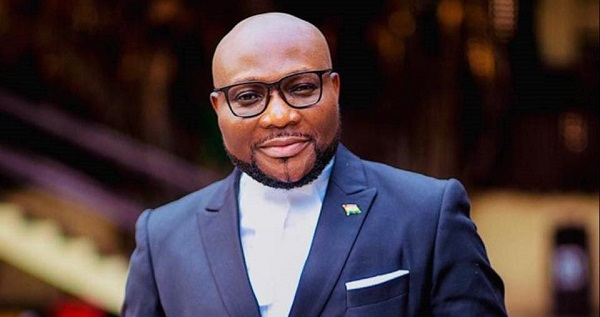The Supreme Court of Ghana has dismissed a review application regarding its decision to quash two legal challenges against the passage of the Human Sexual Rights and Family Values Bill, commonly known as the anti-gay bill.
The court dismissed the review application after broadcaster Richard Dela Sky, through his lawyer, Paa Kwasi Abaidoo, withdrew it during a session on Wednesday, February 26, 2025.
According to a report by citinewroom.com, the nine-member review panel, presided over by Justice Paul Baffoe-Bonnie, before throwing out the application expressed their displeasure with the failure of Richard Sky to show up in court.
According to a report by citinewsroom.com, the nine-member review panel, presided over by Justice Paul Baffoe-Bonnie, before throwing out the application, expressed their displeasure with the failure of Richard Sky to show up in court.
One of the justices on the panel, Justice Prof. Henrietta Mensa-Bonsu, could not comprehend why the applicant would convene nine Justices only for the application to be withdrawn.
The state prosecutors prayed that the bench would impose a cost on Sky for his absence, but the justices agreed that a cost was not necessary because of the nature of the case.
They went ahead to dismiss the case with the presiding judge chastising the applicant in his ruling.
Richard Sky filed the review application after the Supreme Court in December 2024 threw out the suits challenging the constitutionality of the Human Sexual Rights and Family Values Bill.
Two suits were filed against the Speaker of Parliament, Alban Bagbin, over the passage of the Human Sexual Rights and Family Values Bill, commonly known as the anti-gay Bill.
Both suits, which were filed by broadcast journalist Richard Dela Sky and Dr. Amanda Odoi, a researcher at the University of Cape Coast (UCC), sought that the court would nullify the passage of the bill.
According to the two plaintiffs, the passage of the anti-gay bill did not follow the required constitutional procedures.
The Supreme Court on Wednesday, December 18, 2024, dismissed both petitions on the grounds that the bill had not yet become law.
The seven-member Supreme Court panel, chaired by Justice Lovelace Avril Johnson, unanimously dismissed the petitions, stating that until a bill receives presidential assent, it does not constitute an enactment subject
The seven-member Supreme Court panel, chaired by Justice Lovelace Avril Johnson, unanimously dismissed the petitions, stating that until a bill receives presidential assent, it does not constitute an enactment subject to judicial review of its constitutionality.
“The supposed interpretative jurisdiction of the Supreme Court is as yet premature, as there is nothing on which to hang the exercise of the judicial review jurisdiction of the Supreme Court.
“The Constitution itself has prescribed the mode by which an enactment, properly so called, can come into being, and by the principle of separation of powers, those processes must be exhausted to produce a tangible product that can have legal effect when properly assented to by the President, the Head of the Executive,” Justice Avril Johnson said as she read the judgement of the court.
She added, “Until there is presidential assent, there is no Act of Parliament over which the Supreme Court can exercise its original jurisdiction to strike down if found to be inconsistent with the Constitution, 1992. The plaintiffs’ action is therefore dismissed.”
The other members of the panel include Justice Samuel Asiedu, Justice Ernest Gawu, Justice Barbara Ackah-Yensu, Justice Adjei Frimpong, and Justice Yaw Darko Asare
The Parliament of Ghana, on Wednesday, February 28, 2024, passed the Promotion of Human Sexual Rights and Family Values Bill.
The bill, currently awaiting presidential assent, outlaws Lesbian, Gay, Bisexual, and Transgender (LGBT) activities and criminalises their promotion, advocacy, and funding.
Persons caught in these acts will be subjected to a six-month to three-year jail term, with promoters and sponsors facing a three to five-year jail term.
The bill now requires presidential assent to come into force within seven days. However, if President Nana Addo Dankwa Akufo-Addo refuses to assent to the bill, Parliament, by a two-thirds majority vote, can pass it into law.
The Office of the President has instructed the Parliament of Ghana not to attempt to transmit the Anti-gay Bill until the two legal actions against its passage in the Supreme Court are resolved.
The Speaker of Parliament, at a recent media engagement, ordered the Clerk of Parliament to transmit the bill to the president for him to make a decision on, while accusing the executive and the judiciary of conniving to undermine the authority of Parliament.
BAI/
You can also watch as Otumfuo destools Ohwimhene
Watch the latest episode of The Lowdown featuring NPP MP Patrick Yaw Boamah


